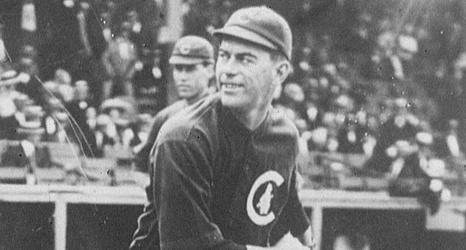The Cubs had been a powerhouse in the National League for more than a decade by the middle of the 1910s, but with retirements and players moving on from the great teams that won four pennants in five years from 1906-10, the ballclub had declined.
They’d held first place for a while in June and July 1915, but an eight-game losing streak in mid-July dumped them to fourth place and out of contention.
Thus a doubleheader August 31 against the Giants, forced by a rainout the previous day in New York, with the Cubs entering the day eight games out of first place, wasn’t anything of significance for the ballclub — except for Jimmy Lavender.
